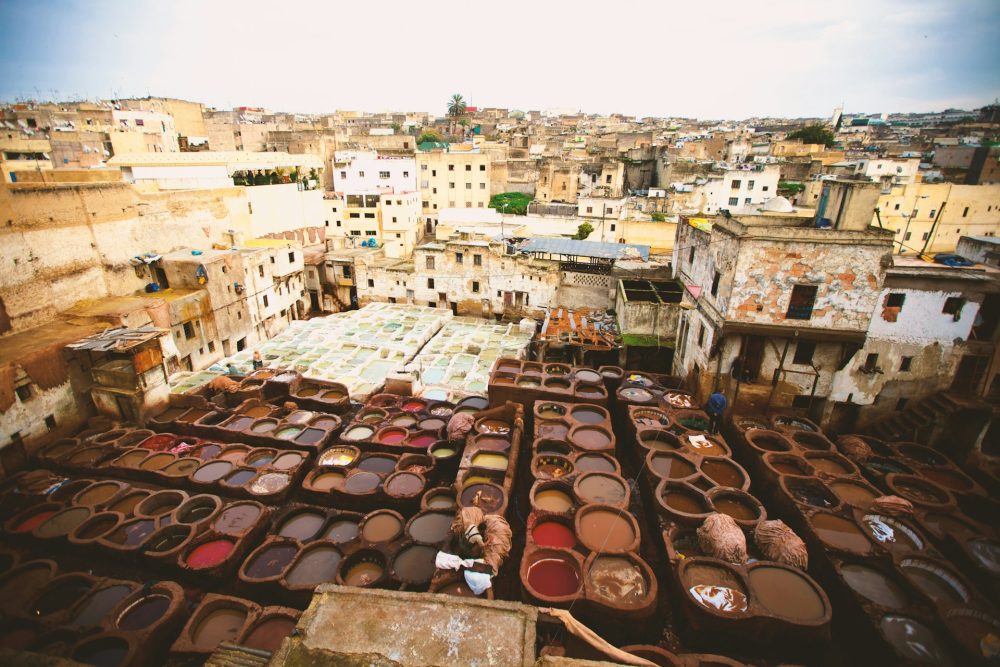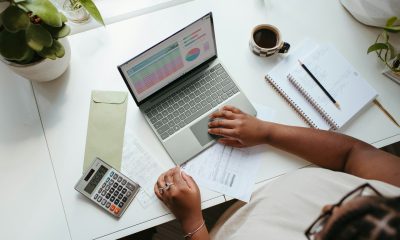Africa
Morocco’s New Decree Targets Job Creation and SMEs Revival Amid Deployment Concerns
Morocco’s new decree aims to boost job creation by offering structured subsidies to small businesses for investment, digitalization, and sustainability. With tiered funding, strict eligibility criteria, and regional implementation, it seeks to modernize the economy. Despite optimism, concerns remain over delays, deployment speed, and capacity to process applications amid high expectations from the business community.

Reviving employment remains a major challenge. By structuring access to public subsidies for small businesses, Morocco hopes to stimulate productive investment, digital transformation, and the ecological transition of this entrepreneurial fabric, a pillar of the national economy. Long postponed, this mechanism raises real hopes regarding its ability to create stable jobs and revitalize the regions. But the uncertain timeline and the feared delays in its deployment are already fueling concerns.
In an economic context marked by the need to modernize the entrepreneurial fabric in Morocco, the government approved in Council the decree relating to the specific support system for very small, small, and medium-sized enterprises within the framework of the Investment Charter. Aimed at structuring the process for granting direct subsidies, this text sets the conditions for access to public aid intended to support productive investment, digital transformation, and the ecological transition of these companies.
This approach is part of a broader desire for targeted recovery of the private sector in Morocco and aims to address the persistent obstacles that hinder the competitiveness of small structures.
The decree defines a rigorous legal and operational framework, based on strict eligibility criteria and funding ceilings tailored to company size. Long-awaited, this text is intended to breathe new life into structures that represent the backbone of the national economy. Among professionals, a note of optimism has emerged following its approval.
“This decree brings relief because frustration was at its peak due to the successive postponements since 2023. Today, it is a strong signal for employers. Moreover, fundamentally, the mechanism adapts to the context of the entrepreneurial fabric. However, skepticism is setting in regarding the speed of the deployment and implementation of this system. The ideal is to have a precise timetable for the call for projects to be able to adapt to it, because the stakes are high, that of job creation,” explained Meriem Zairi, president of the CGEM’s entrepreneurship and small and medium-sized businesses commission.
The other concern relates to the capacity to process files and the resources that can be mobilized in the face of a potentially massive volume of requests, in a context where the expectations of the business community are considerable.
Morocco’s territorial leverage
The mechanism is based on a principle of differentiation based on company size. Very small businesses in Morocco will be eligible for a subsidy of up to 500,000 dirhams, while small and medium-sized enterprises will be able to benefit from aid of up to 2 million dirhams.
The public contribution rate is set at 30% of the total cost of the submitted project. This rate may be increased to 40% for projects led by business groups or consortia, a provision designed to encourage collective approaches, the pooling of resources, and the structuring of collaborative sectors. However, each project must be financed with at least 10% of its own funds.
Regarding investment bonuses, the text breaks them down into three components: a bonus for the creation of stable jobs, a territorial bonus, and a bonus linked to primary activities. The scheme, although initiated at the central level, is designed to be rolled out territorially. The regions, called upon to play an increasing role in local economic management, will be able to participate in the implementation of the program through regional calls for projects or partnerships with support structures.
Once the decree comes into force, an initial call for projects is expected to be launched in the coming months, mobilizing state public funds and potentially local resources. This approach aims to better adapt the system to local realities while anchoring the investment dynamic in the regions.
Rigorous criteria
In terms of eligibility, projects must fall within areas considered priorities by the authorities in Morocco. These include digital transformation, the modernization of production tools, the improvement of quality standards, sustainable development, research and development, and internationalization.
The decree pays particular attention to initiatives that incorporate environmental sustainability principles, those that promote the professional integration of young people, and those that promote female entrepreneurship. Grants will not be awarded automatically under any circumstances. Interested companies in Morocco will be required to submit a comprehensive application, which will be rigorously evaluated by a committee composed of representatives from the government, the private sector, and independent experts.
This committee will analyze the economic viability of projects, their projected impact on job and value creation, their contribution to innovation and sectoral transformation. Only companies that are legally incorporated, in effective operation, and up to date with their tax and social security obligations will be eligible for this financial support.
This requirement aims to ensure that public funds benefit solid structures, committed to structured development in Morocco. By articulating the objectives of economic recovery, industrial upgrading, and social inclusion, this decree marks a turning point in business support policy. It reflects a clear desire to transform VSEs and SMEs from mere recipients of one-off aid to genuine drivers of economic transformation.
__
(Featured image by Ben Ostrower via Unsplash)
DISCLAIMER: This article was written by a third party contributor and does not reflect the opinion of Born2Invest, its management, staff or its associates. Please review our disclaimer for more information.
This article may include forward-looking statements. These forward-looking statements generally are identified by the words “believe,” “project,” “estimate,” “become,” “plan,” “will,” and similar expressions. These forward-looking statements involve known and unknown risks as well as uncertainties, including those discussed in the following cautionary statements and elsewhere in this article and on this site. Although the Company may believe that its expectations are based on reasonable assumptions, the actual results that the Company may achieve may differ materially from any forward-looking statements, which reflect the opinions of the management of the Company only as of the date hereof. Additionally, please make sure to read these important disclosures.
First published in LES ECO.ma. A third-party contributor translated and adapted the article from the original. In case of discrepancy, the original will prevail.
Although we made reasonable efforts to provide accurate translations, some parts may be incorrect. Born2Invest assumes no responsibility for errors, omissions or ambiguities in the translations provided on this website. Any person or entity relying on translated content does so at their own risk. Born2Invest is not responsible for losses caused by such reliance on the accuracy or reliability of translated information. If you wish to report an error or inaccuracy in the translation, we encourage you to contact us

-

 Fintech2 weeks ago
Fintech2 weeks agoDruo Doubles Processed Volume and Targets Global Expansion by 2026
-

 Business1 week ago
Business1 week agoTopRanked.io Weekly Affiliate Digest: What’s Hot in Affiliate Marketing [Health Trader Affiliate Program Review]
-

 Africa4 days ago
Africa4 days agoAir Algérie Expands African Partnerships
-

 Crypto2 weeks ago
Crypto2 weeks agoEthereum Pushes AI Integration With ERC-8004 and Vision for Autonomous Agents


















